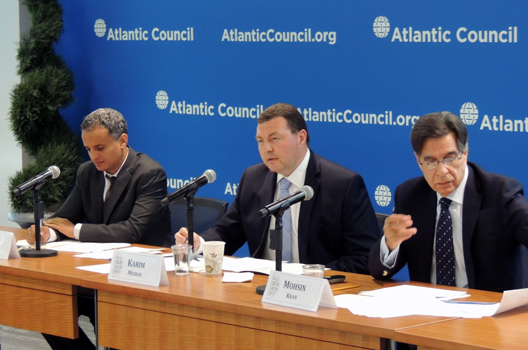 Just weeks after Algeria’s sitting President Abdulaziz Bouteflika was confirmed to serve a fourth term in an election highly criticized by the opposition, the question is raised: what are the prospects for economic and political reform in the North African country in light of mounting economic pressures?
Just weeks after Algeria’s sitting President Abdulaziz Bouteflika was confirmed to serve a fourth term in an election highly criticized by the opposition, the question is raised: what are the prospects for economic and political reform in the North African country in light of mounting economic pressures?
To explore this question, on Thursday, May 29, 2014, the Atlantic Council’s Rafik Hariri Center for the Middle East hosted an event to launch a new issue brief titled “No Arab Spring for Algeria,” coauthored by Senior Fellows Mohsin Khan and Karim Mezran. The authors presented their analysis of economic and political developments in Algeria, assessing the factors that help explain why the country has not experienced a popular upheaval like many of its North African neighbors. Khan and Mezran reviewed policy recommendations for economic reforms, focusing on boosting the private sector and the removal of barriers, and political reforms, namely reducing corruption and increasing transparency, improving human rights, and encouraging popular participation in the political process. In addition, they reviewed the likelihood and feasibility that the new Bouteflika government will undertake these reforms. Anouar Boukhars, nonresident fellow at the Carnegie Endowment for International Peace, presented his insights regarding Algeria’s security situation, focusing on ethnic tensions and terrorism, placing it within a regional context.
